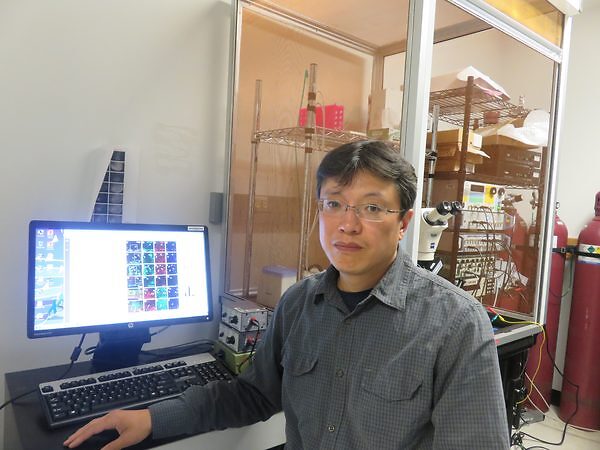Seminar: "Formation and function of corticospinal circuits underlying skilled movements" by Dr. Yutaka Yoshida

Date
Location
Description
This seminar is open only to the OIST community.
Speaker:
Dr. Yutaka Yoshida
Division of Developmental Biology
Cincinnati Children’s Hospital Medical Center (OH, USA)
Abstract
We are interested in understanding the neural circuits underlying locomotor and skilled motor behaviors in mammals. The motor neuron activity integral to these neural circuits is regulated by synaptic inputs from three main pathways: local interneuron circuits, proprioceptive sensory feedback, and descending fibers from the brain, including the corticospinal (CS) tract.
In this presentation, I will particularly focus on CS circuits. CS neurons control motor neuron activity for skilled movements such as reaching and grasping. We found how species-specific CS circuits may be formed during development. Manual dexterity in higher primates is superior to that of other animals. This trait emerged together with the appearance of cortico-motoneuronal (CM) connections during the evolution of the mammalian CS system, and was thought to be unique to higher primates. However, we identified CM connections in early postnatal mice, which are eventually eliminated by Sema6D-PlexA1 signaling. PlexA1 mutant mice maintain CM connections into adulthood, resulting in superior manual dexterity compared to controls. Furthermore, we showed that species-specific regulation of PlexA1 expression by Fezf2 may be crucial to the evolution of enhanced fine motor control in higher primates (Gu et al., 2017a). We also demonstrated how the activity dependent, non-apoptotic Bax/Bak-caspase pathway regulates reorganization of CS motor circuits during development in mice (Gu et al., 2017b). Finally, I will talk about how CS neurons in the motor and sensory cortex differentially control skilled movements through distinct spinal interneuron connections (Ueno et al., unpublished).
In addition to the formation and function of motor circuits, we are also interested in the regeneration and reorganization of neural circuits following spinal cord injury (SCI). Time permitting, I will briefly talk about our SCi research (Ueno et al., 2016) at the end of my talk.
References)
1) Gu et al., Science (2017a), 357, 400-404.
2) Gu et al., Neuron (2017b), 94, 626-641.
3) Ueno et al., Nature Neuroscience (2016), 19, 784-787.
Biography
Dr. Yutaka Yoshida is an associate professor in Division of Developmental Biology at Cincinnati Children’s Hospital Medical Center (CCMHC), where he studies neural circuits to control motor behaviors. He obtained his PhD degree in Dr. Tadashi Yamamoto’s lab at University of Tokyo, and then did his postdoctoral training in Dr. Thomas Jessell’s lab at Columbia University. He has been a faculty member in CCHMC since 2008.
Subscribe to the OIST Calendar: Right-click to download, then open in your calendar application.



